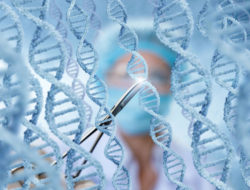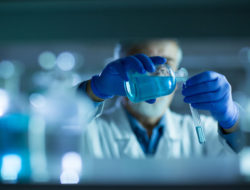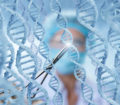Reports + Research
Stunning Result from UCSD’s Clinical Trial Genetically Matching Cancer Patients to Treatment
UCSD’s I-PREDICT clinical trial is determining if cancer patients respond better to treatments chosen based on the genetic makeup of their tumor. For one patient, the answer is yes. In a patient story detailed in The San Diego Union-Tribune, a local woman with metastatic breast cancer is now in remission after receiving a treatment genetically-matched to her cancer. The drug she received, Opdivo, is approved for kidney and lung cancer, but not for breast cancer. However, because her breast cancer had a mutation that Opdivo targeted, she received the drug. Results from the study, published in Nature Medicine, showed that outcomes were best when patients received treatments “that acted against as many of the tumor mutations as feasible.”
San Diego’s Amplyx Rises to Challenge of New Drug-Resistant Fungal Infections
A recent article in the New York Times brought light to another deadly drug-resistant battle—this time with a fungus called Candida auris. This urgent threat has also brought light to the drug development efforts of Amblyx, which is enrolling patients in Phase 2 clinical trials for its experimental drug APX001A. This drug candidate is designed to treat life-threatening, invasive fungal infections caused by Candida, Aspergillus, and rare molds. Amplyx president and CEO told Xconomy, “This is not something we can sterilize our way out of…”
Salk Institute Gets $35 Million to Fight Global Warming with “Carbon-Hungry” Plants
The TED Audacious Project has granted the Salk’s Harnessing Plants Initiative $35 million, “one of the largest single gifts to a project in the institute’s history,” according to the San Diego Business Journal. The grant will be used to genetically engineer plants that can remove more carbon dioxide from the air, by increasing storage in the roots. This could not only reduce carbon dioxide in the air but also enrich soil and increase crop yield. The San Diego Union-Tribune reports that to maximize the effects, the initiative is looking to engineer the biggest crops, including rice, corn, wheat, rye, and cotton.
San Diego Receives $3 Million from JPMorgan Chase to Double Skilled Workers by 2030
The San Diego Regional EDC has received $3 million from JPMorgan Chase. This is the largest grant in the organization’s history and will be used to support the region’s inclusive growth efforts and help build San Diego’s talent pipeline. The EDC’s Advancing San Diego program is described as a “demand-driven, employer-led strategy to both connect underrepresented residents to high-demand jobs and provide small business access to diverse talent pipelines.”
Read + Listen
POW: Podcast of the Week
KPBS and The Book Catapult have launched a new podcast, Device, to explore the “scientific plausibility of intriguing literary novels.”
It’s Happening Here
April 25
San Diego Larger Than Life Science launches with its first event on April 25 from 4-7 p.m. at the NEW BioLabs in Towne Centre. The first event will explore “going virtual.”
April 26
Bioengineering Day is UCSD’s largest student-led bioengineering event. It will take place Friday, April 26, starting at 8 am at the Telemedicine Center.
April 30
Meet the 2019 SDVG Cool Companies on April 30 at Belly Up Tavern. Register here.
May 2
Discovery at the Disco Tech happens the evening of May 2 at the Del Mar Fairgrounds to support research at Sanford Burnham Prebys Medical Discovery Institute.
Tags: Biotech, Biotech Briefing






























